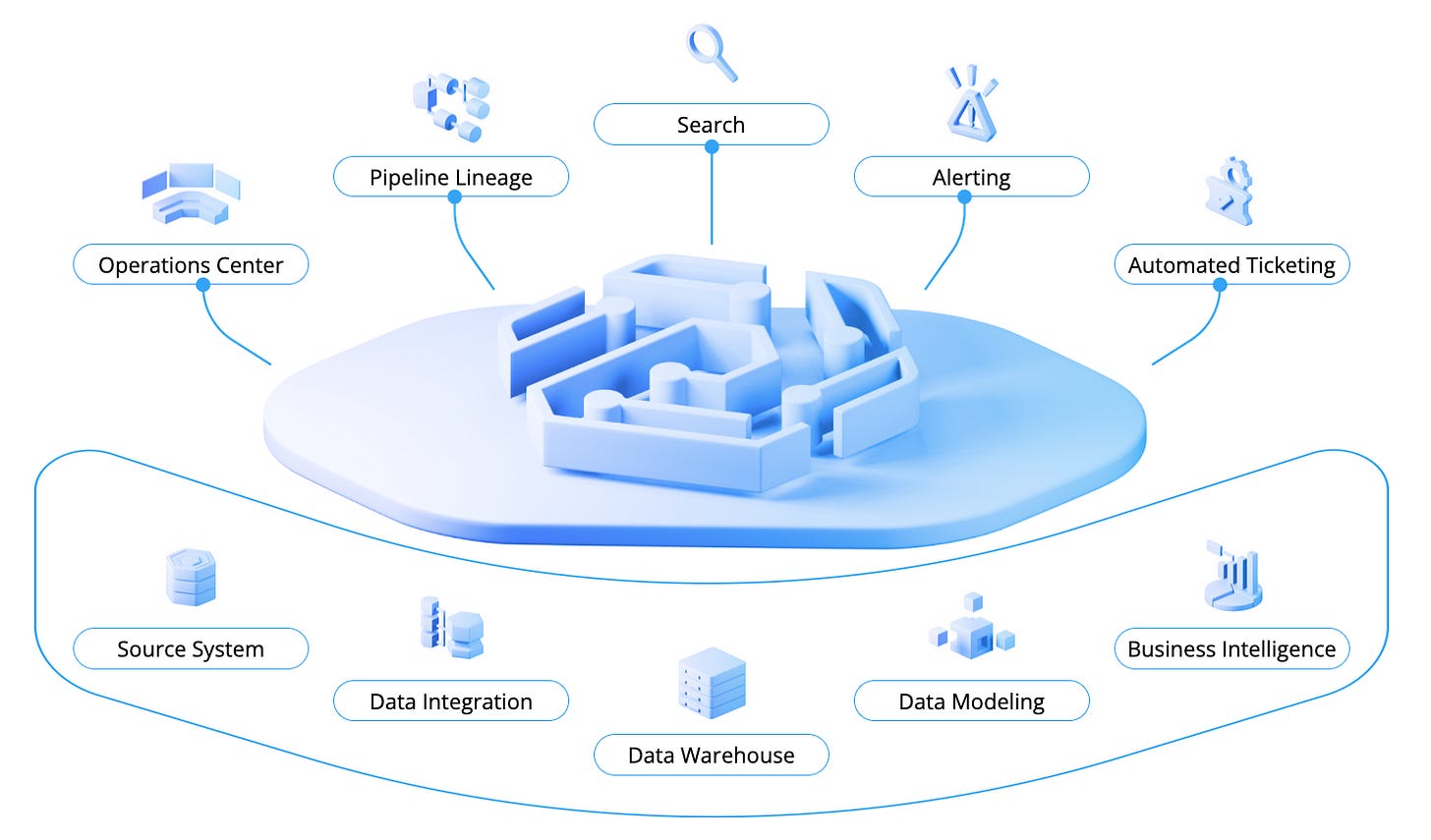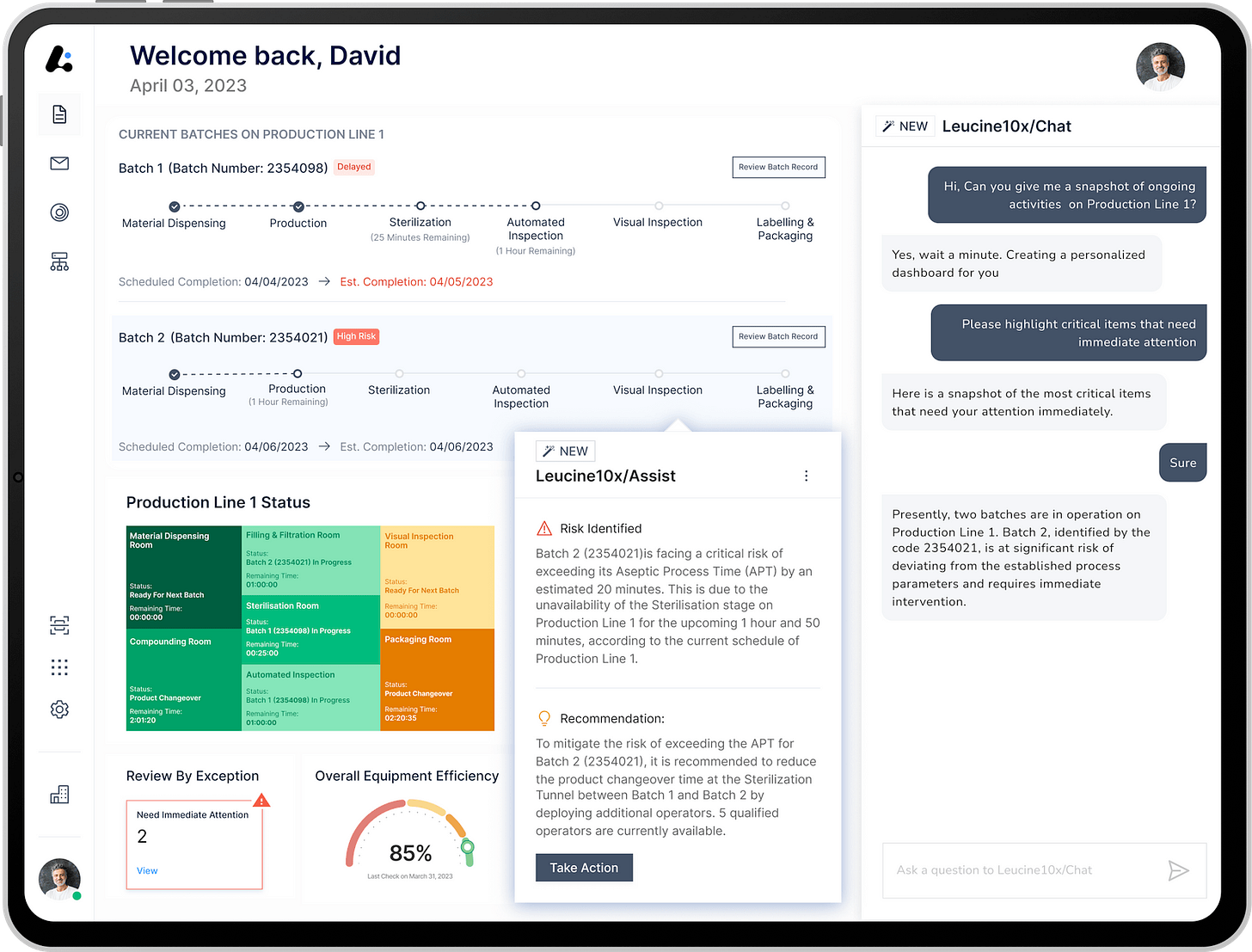China could blacklist training data sources for generative AI models
Plus OpenAI’s annual revenue passes $1.3 billion
Today’s Highlights:
📰 Top Stories: China could blacklist training data sources for generative AI models + OpenAI’s annual revenue passes $1.3 billion
👀 Content: How Elon Musk’s hope to merge humans w/ AI will damage our brains
💰 Funding: Orbem raises €30M Series A for AI-powered MRI tech that can scan any organic material
⚡️ Quick News Hits
Google pledges to defend generative AI users accused of IP violations and copyright claims, following similar commitments made by Microsoft and Adobe.
Stack Overflow cuts 28% of workforce (go-to-market/support teams) due to challenges posed by generative AI boom and AI-generated coding assistance
Amazon, Shopify, and eBay deploy AI to help sellers write compelling product listings and optimize e-commerce efforts.
YouTube unveils "Spotlight Moments," an AI-driven ad package allowing brands to target cultural events and engage audiences with curated playlists.
Breakthrough "Ring Attention" research enables AI models to process millions of words and videos, revolutionizing their capabilities.
Microsoft introduces AI bug bounty program, offering rewards of up to $15,000 for identifying vulnerabilities in its AI-powered Bing experience.
NYC Mayor Adams uses AI voice cloning for multilingual outreach, prompting ethical concerns and calls for transparency in AI usage.
NYC unveils comprehensive "New York City Artificial Intelligence Action Plan," a strategy for responsible governance, including a citywide AI chatbot to assist businesses.
SEC Chair Gary Gensler warns of an AI-driven financial crisis, and calls for swift regulatory action to address AI risks to financial stability.
📰 Top Stories
China proposes blacklist of training data for generative AI models
(Source: Reuters)
TLDR: China has proposed security requirements for generative AI services, introducing a blacklist of data sources that cannot be used to train AI models. These requirements aim to ensure that generative AI models do not use content containing illegal or harmful information, as well as censored data from the Chinese internet.
The regulations come as Chinese tech firms, including Baidu, have been allowed to launch generative AI-driven chatbots to the public. The Cyberspace Administration of China (CAC) has been urging firms to submit security assessments before public launches.
Meanwhile, The U.S. plans to introduce new rules to prevent American chipmakers from selling AI chips to China that bypass existing government restrictions. These updates aim to block AI chips that fall just under current technical parameters and demand companies to report shipments of others.
This crackdown coincides with U.S. efforts to improve economic relations with China. The restrictions were originally designed to prevent U.S. chips and equipment from strengthening China's military but have become a point of contention in diplomatic relations.
The Big Picture: China's move to establish security requirements for generative AI reflects the global challenge of regulating AI technologies. As China seeks to become a world leader in AI, it emphasizes the importance of balancing technological advancement with ethical and security considerations. This underscores the broader competition between nations in the AI field and the need for international cooperation on AI governance.
OpenAI’s Revenue Crossed $1.3 Billion Annualized Rate, CEO Tells Staff
(Source: The Information)
TLDR: OpenAI's CEO Sam Altman announced that the company's revenue has surged to an annualized rate of $1.3Bn, a significant increase from just $28M in 2022. This growth is primarily attributed to the launch of ChatGPT's paid version and ChatGPT Enterprise.
In comparison, one of OpenAI's competitors, Anthropic, has only reached $100M in annualized revenue, substantially less than OpenAI's $1.3Bn run rate. OpenAI's ChatGPT has become a prominent example of the transition of large language models from research projects to practical tools.
OpenAI's success highlights the rising demand for generative AI tools, with major enterprises like Microsoft, Stripe, Volvo, and IKEA already utilizing OpenAI's premium products. The company plans to announce upgrades and performance improvements for ChatGPT in the near future, which could further boost its growth and valuation.
👀 Interesting Reads and Content
Deep Dives
How ‘A.I. Agents’ That Roam the Internet Could One Day Replace Workers (The New York Times)
Mind Of Machines: Philosophers, cognitive scientists, and engineers grapple with what it would take for AI to become conscious. (MIT Tech Review)
How a billionaire-backed network of AI advisers took over Washington (Politico)
AI voice clones mimic politicians and celebrities, reshaping reality (Washington Post)
A New Tool Helps Artists Thwart AI—With a Middle Finger (Wired)
Insightful Information
AI Could Spur an Economic Boom. Humans Are in the Way. (WSJ)
How generative AI is creeping into EV battery development (TechCrunch)
Computers Are Learning to Smell (The Atlantic)
Analysis and Critiques
Elon Musk wants to merge humans with AI. How many brains will be damaged along the way? (Vox)
Can You Hide a Child’s Face From A.I.? (NY Times)
Millions of Workers Are Training AI Models for Pennies (Wired)
💰 Funding News
1. Orbem, an AI-powered MRI technology company combining rapid MRI with machine learning to drive AI-powered imaging innovations, raised a €30M Series A led by 83North w/ La Famiglia, The Venture Collective, Possible Ventures, and various notable individuals.
2. Pantomath, a data observability and traceability platform that automates data pipeline monitoring to improve data reliability and trustworthiness, raised a $14M Series A led by Sierra Ventures w/ Bowery Capital and Epic Ventures.
3. NEURA Robotics, an AI and robotics startup specializing in collaborative robots (cobots) that combine AI and sensory processing to work alongside humans in various industries, raised $16M in funding led by InterAlpen Partners.
4. Lakera, an AI security company providing a Developer-First AI Security Platform that empowers developers with a vast AI vulnerability database to enhance the secure development of AI products, raised $10M in funding led by Redalpine w/ Fly Ventures, Inovia Capital, and angel investors.
5. Creative Force, a platform that facilitates the creation of marketing campaigns and online merchandising content at scale using an AI-powered content operations workflow designed for large e-commerce retailers and brands, raised an $8.9M Series A led by the Export and Investment Fund of Denmark and Hearst Ventures.
6. Leucine, a company offering a compliance cloud platform that automates the creation of digital manufacturing records and employs AI to identify deviations to enhance compliance for the pharmaceutical industry, raised a $7M Series A led by Ecolab Inc. w/ Pravega Ventures, Axilor Ventures, Techstars, and angel investors.
7. Relay.app, a company combining AI assistance, human-in-the-loop collaboration, and multiplayer features to streamline repetitive tasks and boost team productivity, raised $3.1M in funding led by Andreessen Horowitz.
8. Kodex AI, a startup creating an AI-powered copilot that assists financial professionals in quickly accessing the right information and making faster decisions, raised €1.6M in funding led by Signals VC w/ Techstars, Deutsche Bank, and strategic business angels.




